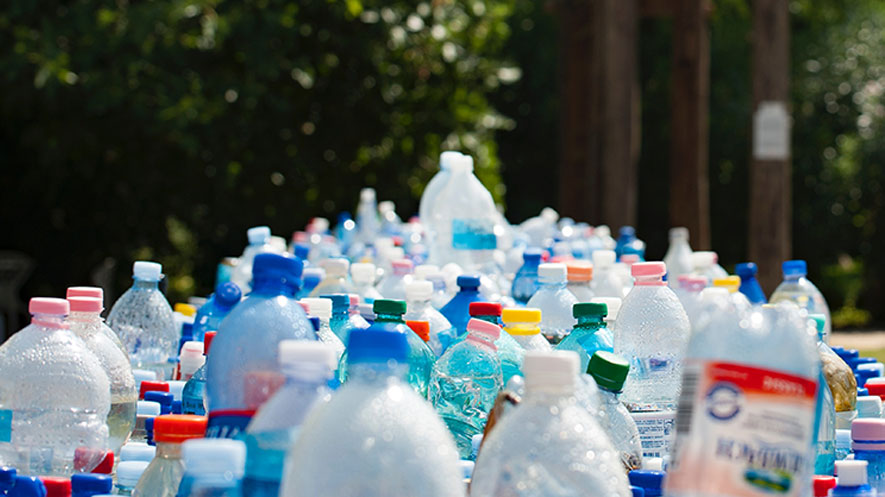Scientists have created a mutant enzyme that can degrade plastics used to make single-use drinks bottes.
A plastic dominated world, maybe not after all. A mutant enzyme has been engineered by a team of international researchers that breaks down common polluting plastics including one of the main culprits, the plastic bottle. The discovery could result in the full breakdown cycle of the more persistent plastics found in even the most remote regions on Earth – some positive news in the face of a worldwide plastic pollution crisis.
In 2016, scientists made an important discovery inside a recycling plant in Japan while testing different bacteria on a bottle: a bacterium that has evolved a natural appetite for plastic waste made from one of the most abundant synthetic polymers, polyethylene terephthalate (PET). The bacterium was the first insight that there was a natural degradation process with the potential to solve the colossal problem plaguing the world today.
Since the discovery of bacterium, Ideonella sakaiensis, researchers from the University of Portsmouth and US Department of Energy’s Renewable Energy Laboratory (NREL) has identified the crystal structure of the enzyme, known as PETase, which chemically breaks down the plastic leaving smaller molecules that the bacterium can absorb.
During their investigations, researchers came across a stroke of luck when they had accidently created a mutant enzyme that enhances plastic degradation. Physically tailored to bind to PET surfaces, researchers were able to change the chemical properties of the natural PETase enzyme to work around 20% more quickly. The exciting discovery was augmented when they demonstrated that, as well as improved performance, the mutant PETase can also degrade another important polyester known as PEF (polyethylene-2,5-furandicarboxylate).
“PET is the most abundant polyester plastic manufactured in the world” said Harry Austin, a postgraduate researcher from the University of Portsmouth Molecular Biophysics Laboratories, who led the study. “Given the results obtained from the PETase double mutant, it is likely that significant potential remains for improving its activity further.”
‘This enzyme thus provides an exciting platform for additional protein engineering and evolution to increase the efficiency and substrate range of this polyesterase’, added Austin.
It should, however, be noted that although this is a mammoth step towards ameliorating an immense problem, it will not solely eradicate the worlds plastic dependency. The research, published in National Academy of Sciences, will be an important step in providing new opportunities for bio-based plastics recycling.
By Margaux Monfared
Journal:
Austin, H. P., Allen, M. D., Donohoe, B. S., Rorrer, N. A., Kearns, F. L., Silveira, R. L., Pollard, B. C., Dominick, G., Duman, R., El Omari, K., Mykhaylyk, V., Wagner, A., Michener, W. E., Amore, A., Skaf, M. S., Crowley, M. F., Thorne, A. W., Johnson, C. W., Woodcock, H. L., McGeehan, J. E., & Beckham, G. T. (2018). Characterisation and engineering of a plastic-degrading aromatic polyesterase. Proceedings of the National Academy of Sciences, 201718804.



